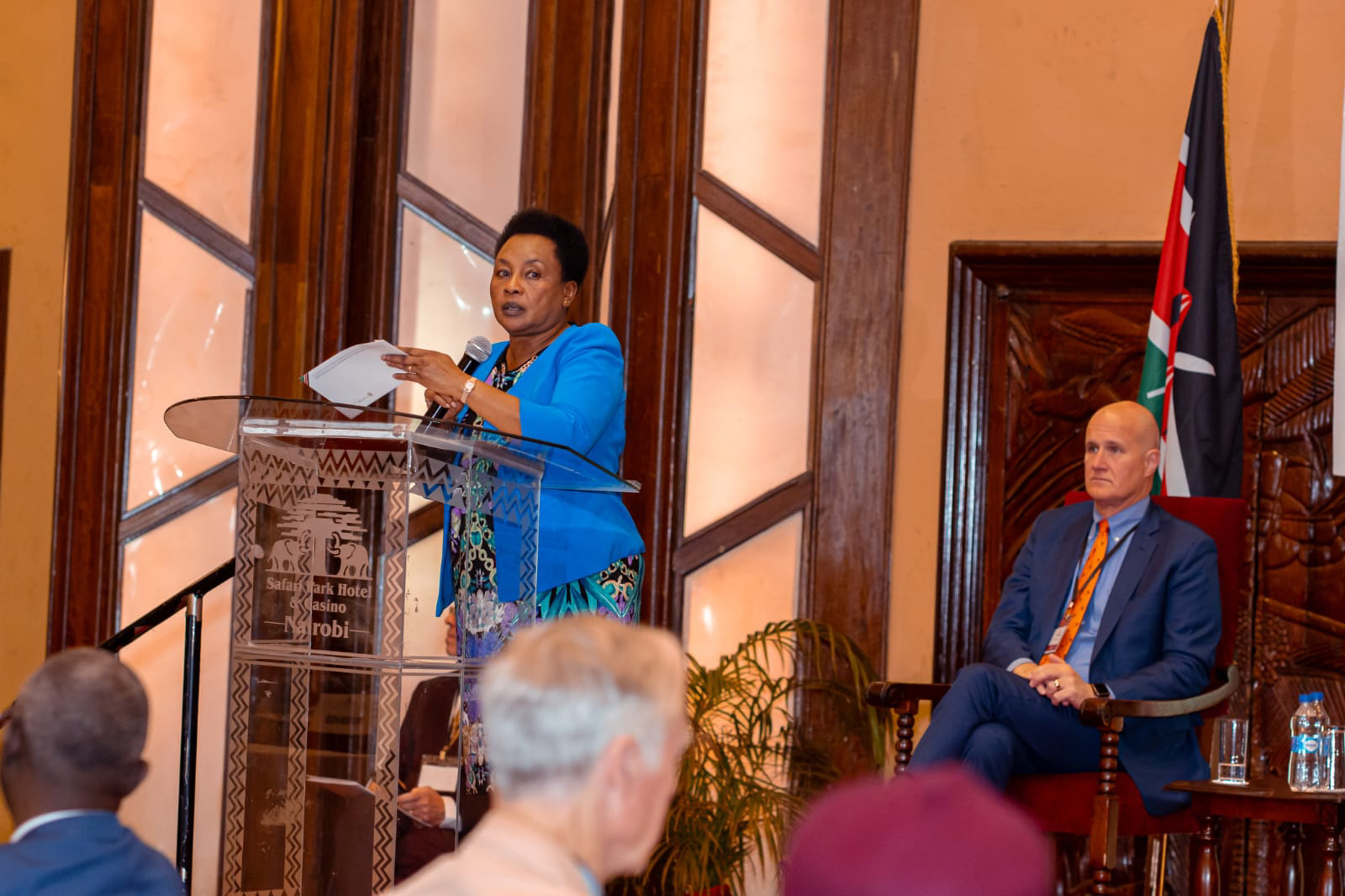IGAD Renews Push for Women's Land Rights Amid Climate and Development Urgency
By John Toris
The Intergovernmental Authority on Development (IGAD) and the Government of Kenya today reignited momentum toward securing women’s land rights across the region, framing it as both a moral imperative and a strategic response to climate change, economic development, and gender inequality.
Speaking the official opening ceremony of the Regional Dialogue on Gender, Land and Climate Resilience in Nairobi, IGAD Deputy Executive Secretary H.E. Mohamed Abdi Ware stirred a call to action, painting a vivid picture of the injustice faced by millions of African women. “This morning, I see many delegates in this room. I see the voices of women who rise before dawn to cultivate land they cannot own. Women who feed our nations yet remain hungry for justice,” he stated.
 PHOTO: Regional Dialogue on Gender, Land and Climate Resilience in Nairobi, IGAD Deputy Executive Secretary H.E. Mohamed Abdi Ware delivering his keynote address during the opening ceremony
PHOTO: Regional Dialogue on Gender, Land and Climate Resilience in Nairobi, IGAD Deputy Executive Secretary H.E. Mohamed Abdi Ware delivering his keynote address during the opening ceremonyWare underscored that the climate crisis has only exacerbated existing inequalities. “Women walk further for water. They watch their daughters leave school to help families survive,” he said. “Yet, if women had equal access to land and resources, they could increase farm yields by up to 30% and reduce global hunger by 17%.” He described the current reality as “the mathematics of injustice,” citing that although women produce 70% of Africa’s food, they own less than 20% of the land. In the IGAD region specifically, less than 10% of land wealth is controlled by women, a disparity he called “not just unfair, but economically devastating.”
But progress is underway. Since 2021, IGAD has moved from policy to implementation through its Women's Land Rights Agenda, engaging 260 parliamentarians in six countries. “This year alone, we’ve launched cross-border collaboration networks and national dialogues. But we need more than policies; we need champions,” said Ware. He issued a direct appeal to women legislators present: “You are not just lawmakers; you are architects of the future. Your voices can amplify millions who have been silenced too long.”
In a similarly impassioned address, the Cabinet Secretary for Regional Women Parliamentarians from Kenya emphasized the ministry’s role in supporting the country's Vision 2030, the Bottom-Up Economic Transformation Agenda (BETA), and international frameworks like Agenda 2063 and Agenda 2030. “The Ministry of Lands, Public Works, Housing, and Urban Development is a key enabler of our national development,” she said. “Secure land tenure, especially for women, is critical to economic empowerment, food security, and peace.”
She pointed to longstanding barriers, including discriminatory customary practices and traditional dispute resolution mechanisms dominated by male elders. “Customary laws govern about 65% of land rights in Kenya, and women face severe restrictions, especially in inheritance and leadership roles,” she explained.
PHOTO: Women parliamentarians, duty bearers and experts from across IGAD member states closely following the discussions during the opening ceremony of the dialogueHowever, she highlighted major reforms, including constitutional provisions, gender-focused policy frameworks, and legal statutes such as the Matrimonial Property Act and the Community Land Act. One such initiative, the Kilimanjaro Initiative, has mobilized rural women across Africa to demand greater participation in land governance.
“Our digitization of land processes is not just a technical upgrade; it is a transparency tool,” she said. “The Gender Unit within the State Department is now central to policy planning, and the Kenya Women Land Rights Agenda is actively guiding us through implementation until 2030.”
Key focus areas include securing women’s legal access to land, reforming discriminatory norms, promoting awareness, and building coalitions among governments, civil society, and community groups. “These reforms will empower women socially, economically, and politically,” the Cabinet Secretary affirmed. “This is about more than land. It is about dignity, security, and a future where no one is left behind.”
As the conference progresses over the next three days, participants aim to establish a Permanent Regional Platform for Women Parliamentarians and finalize actionable policy roadmaps to be implemented at national levels. Ware concluded with urgency, “History is watching. The climate crisis won’t wait, and the women of our region have waited long enough. Let us leave here not with good intentions, but with determination to turn women’s land rights into a lived reality, not a distant dream.”




Comments
Post a Comment